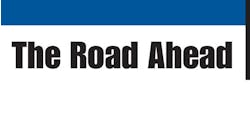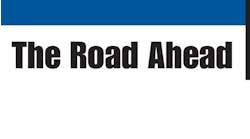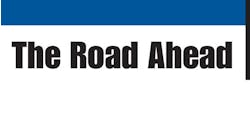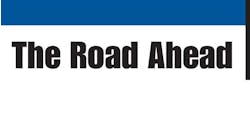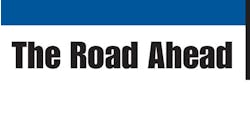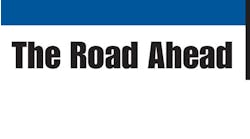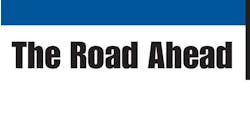THE EXPLOSIVE GROWTH of the Internet has produced tentacles that reach as far as the imagination can fathom. Trailer and truck-equipment parts sales are no different than any other products that have found a place on the Internet.
“It's for anyone who wants to expand their business or cater to a market outside their territorial region,” says Glenn Hojnowski, general manager of Internet operations for the Trailer Parts Superstore at www.easternmarine.com. “In the 1970s and 1980s, it was called mail order. There are still printed catalogs out there. You can't do a mail order, but to do it electronically online, you can reach a national, if not worldwide, audience.”
Says Pete Petropoul, president of www.truckersmall.net, “With a lot of the high-volume purchases, customers don't have to pay sales tax if they buy it over the Internet from out-of-state companies. A lot of companies are willing to offer a discount on volume because the overhead is a lot less.”
And it's incredibly convenient and fast.
This from a customer in Vermont who used www.etrailer.com, which has warehouses in Concord Ontario, Taylor, Michigan, St Charles, Missouri, Festus, Missouri, Chesapeake, Virginia, Lakeland, Florida, Dallas, Texas, and Fresno, California:
“I've never used your site before this and had only heard about it on some Internet forums. I have to say I was very impressed by your prices and very prompt shipping. Living in Vermont we do not have a ton of choices … After going (to a local shop) twice and each time being told that they do not make a trailer light adapter for 2005 Nissan Frontier trucks, I ordered from your site. I placed my order on Sunday night and received an order confirmation first thing at 8 the next morning, and to my surprise, a confirmation of shipping by noon the very same day. Probably the best experience I've had purchasing off the web in seven years.”
From marine to more
The Trailer Parts Superstore, based in Newark, Delaware, is in its sixth year as an Internet parts sales site. It originally focused on the boat trailer industry, with small sales of cargo and utility trailers. Hojnowski says the most recent expansion has been into non-marine parts — electric brakes and heavy-duty cargo equipment.
He says the Superstore no longer sells complete trailers because of the continually rising price of steel and the necessity of offering a service shop.
“But we can darn well build a trailer from all the parts we sell,” he says with a laugh. “The parts market, to a certain degree, is across-the-board, whether it's a utility trailer or a boat trailer. Most of these parts — axles, tires, lights, safety equipment, brakes — are not made by most of the trailer manufacturers in the United States. They buy them from axle manufacturers or tire manufacturers, so there's a lot of cross-use between a large segment of markets. And then you obviously have your specialized parts like boat-trailer rollers, which are only going to be used on a boat trailer.”
Hojnowski says his site's prices are not going to be the cheapest for every part, but are “very competitive.”
“By buying all of our products at the best prices we can negotiate — usually directly from manufacturers or importers — by buying in volume and warehousing in volume (in a 30,000-sq-ft warehouse), by keeping products on hand and having them when people need them, we can get the best prices we're able to.”
His site contains a custom-built shopping cart with high encryption. The customer selects products, adds them to the basket, goes through the checkout process and pays with a credit card. The Trailer Parts Superstore also takes orders via telephone, fax or mail. Hojnowski says the telephone ordering system — 8 am-6pm Eastern time, seven days a week — remains a viable option for those who aren't sure exactly what they need and have technical questions that need to be answered.
Petropoul started www.truckersmall.net in 1999 and didn't experience much initial activity. By 2002, it was doing just $13,000 in sales.
“My business partner and I were like, ‘Why did we ever get into this business?’ ” he says. “But I had developed a working relationship with a lot of truck drivers. They said, ‘This goes in a cycle. Ride it out this year and things will get better next year.’ So we rode it out. And every year's gotten a little bit better: $23,000 in 2003 and $33,000 in 2004.”
And then came 2005. Through the end of September, sales already had reached $250,000, and Petropoul thinks $1 million is attainable in 2006. Petropoul — who sells mostly accessories, and no hard parts for engines or bodies — attributes the upsurge to visibility and word of mouth.
“We thought that with the price of fuel, it wouldn't be this good,” he says. “But it's like somebody opened the door and turned the lights on. I think it's because we've been around longer and we get a lot of referral work. We do a lot of custom work — bug screens and mud flaps in house, putting company names and logos on. People see something and go, ‘Where did you get that?’ Truck drivers like to talk.”
Truckersmall.net, based in Odell, Illinois, can ship orders the next day, and Petropoul says he also has “worked out deals with manufacturers to ship direct for us.” He has customers in the US, Canada, Puerto Rico, South Africa, France, and Germany.
PayPal servers
He says his business partner, Web designer Mark Boden, set up the Web site. They decided to use PayPal because “a lot of people feel comfortable with it,” and they also accept credit-card payments over the telephone.
“I think with every year that passes, people get more comfortable with ordering parts over the Internet,” he says. “They might not trust it because you hear of credit-card-number theft from Web sites. That's why we don't process anything online ourselves. We use PayPal, which has its own secure servers. We don't store any information online.”
He says his company has not engaged in any pay-per-click agreements with search engines, but he won't discuss how it gains its Internet visibility in searches.
“We're ranked pretty high on a lot of our products in a search,” he says. “Mark is a very good page-builder, so they get picked up by search engines. When we put up a new page, within two or three days we're at the top of the search engine.”
Petropoul says he is looking for serious investors who could help the company expand its product lines to include: construction equipment, utility equipment, maintenance equipment, pilot-car equipment, dock supplies, and shipping/receiving supplies.
Customer-specific software
Steve Stich, president and CEO of Wheelco, a traditional warehouse distributor, says Internet parts sales have been particularly effective for the company's larger customers.
“It's for specific customers — people who have purchasing agents,” he says. “Prices and specific parts numbers they regularly buy are in the system.
“We pre-screen candidates first: ‘Is this something of interest to you? Would this be of benefit to you? Quite frankly, some are like, ‘No, I don't want any part of it.’ But others go, ‘That'd be great. You mean I can go online, get a shopping cart, get my total, get my confirmation number e-mailed to me? There's a lot of value in that.’ It's a big advantage for some of our customers. We've actually done a little more business with them because of that.”
Like many others in the heavy-duty truck industry who are doing Internet parts sales, Wheelco is using Karmak's ProfitMaster series.
The software allows the user to search for parts, add parts to a shopping cart, and place parts orders via the Internet using only their web browser, and includes the interfaces necessary to create parts sales orders in the Legend and INFO 5 business systems.
The software is installed on a Microsoft Windows-based web server at the Karmak client's site, usually in the same computer room as their Legend or INFO 5 business system. The Web server is connected to the Internet and hosts the Web pages that users access in order to search for and order parts. When an order is placed, the Web server uses the interfaces to transmit the order to the Legend or INFO 5 business system, and a parts sales order is created.
Benefits include: improved service by allowing customers to check price and availability, and place orders any time, 24 hours a day, seven days a week; customers receive confirmation of their orders via e-mail; saves time that is spent manually entering faxed orders; eliminates errors caused by unreadable faxes or incorrectly entered part numbers; sales personnel have more time to call or visit customers because they are not taking telephone orders or retyping faxed orders; built-in security gives you control of which customers can place orders online.
Users of both the Retail and Administrative portions of the Web site must have: the Microsoft Internet Explorer browser (6.0 or higher), Legend V5.8-1 or higher on an AlphaServer system with OpenVMS V7.2-1 or higher; INFO 5 V7.2 or higher on a RISC-based AS/400/iSeries system with OS/400 V5R1M0 or higher; and a dedicated, high-speed Internet connection (bandwidth must be sufficient to support all existing applications plus the additional traffic that will be generated by customers using the IPS application. The IPS server must have access, through a firewall, to the Legend or INFO 5 business system via a high-speed network connection, ideally either 100Mb or Gigabit Ethernet. Performance over a WAN connection may not be acceptable.
For creation of a hardware-based firewall/DMZ, Karmak recommends either the Cisco PIX Firewall product line or the SonicWALL Firewall product line. Creation of a segregated DMZ requires a Cisco PIX 515E or higher or a SonicWALL TZ 170 or higher with Enhanced OS.
The system (Web server) that hosts the Web site requires Microsoft Windows 2000 Server, Windows Server 2003 Standard Edition, or Windows Server 2003 Web Edition. The IPS server also requires Microsoft IIS 6.0 or higher and either MSDE 2000 or SQL Server 2000. Karmak will provide MSDE 2000 on request. The customer must have one or more firewalls, implemented as a DMZ, to properly protect their internal network and their business system from outside intrusion.
“For certain customers, it's a big advantage — mostly medium to large fleets or people who really know what they want to buy,” says Jim Schien, vice president of sales and marketing for Karmak. “They don't need to talk to that counter person. They already know what they want. So rather than pick up the phone and talk to somebody, they're keying in their orders.
“It's just a way for them to sell more product to their customers.”
• E-stores from Spokane Computer
Spokane Computer has 15 customers using its E-store programs. Some features:
-
Locate parts by supplier, product type, part number, or part description.
-
Part numbers, descriptions, prices, and even pictures of products are maintained in the E-store database and displayed in an easy to read format. Shoppers simply click on a “Buy” button to add items to their shopping cart.
-
Integrated shopping cart with optional secure credit card processing.
“The E-stores are tied back into their accounting system, so when a customer places an order, it integrates right into inventory, invoicing and accounts-receivable systems so that orders don't have to be re-entered,” says Dan Olson, president of Spokane Computer. “People who are on the Web sites can get their special pricing and the added advantage of having an integrated site. With a lot of stores, it's a case of, ‘I want to sell a caution light, highway cone, reflector jacket. Here's the description and my price.’ People click on it and it e-mails information, and they have to go over to the back-office system and key in the order and key in the customer.”
-
Web-based administration allows a company to maintain the items to be sold in its E-store without expensive programming. Web administrators utilize a secure login to add, modify, and update items via Web- based entry forms.
-
A secure login option can be included, allowing select customers to receive special pricing, or to buy parts not available to the general public.
Part Schematics
-
An optional Part Schematics feature allows your customers to order parts by clicking on a picture (or part schematic drawing) of the part.
“If Lee Transport wants to get parts from Donovan Tarp Systems, it shows the schematic of Donovan Tarp Systems with different drawings of different parts,” Olson says. “You just click on the number of the lineout for which part you see on the drawing. It tells you the part number, price, and description. Then you can decide whether to buy it. We've seen a lot of people really like that schematic capability because a lot of times, the picture's worth a thousand words.”
-
For Truck Equipment distributors, a Truck Parts Application Guide insures that customers find the correct part for their truck by matching parts based on the make, model, and year of the truck the equipment is targeted for.
“With a Ford truck, your running boards are going to be different than if it's a GM truck,” Olson says. “And '97 running boards are probably going to be different than '04 running boards. So the Web sites can be set up to ask chassis information prior to looking for parts, so you're offering only the parts that will fit that chassis. With a lot of sites, you have to go find them from a matrix, a spreadsheet or a chart. You put in the type of truck and it offers you the parts that will fit.”
